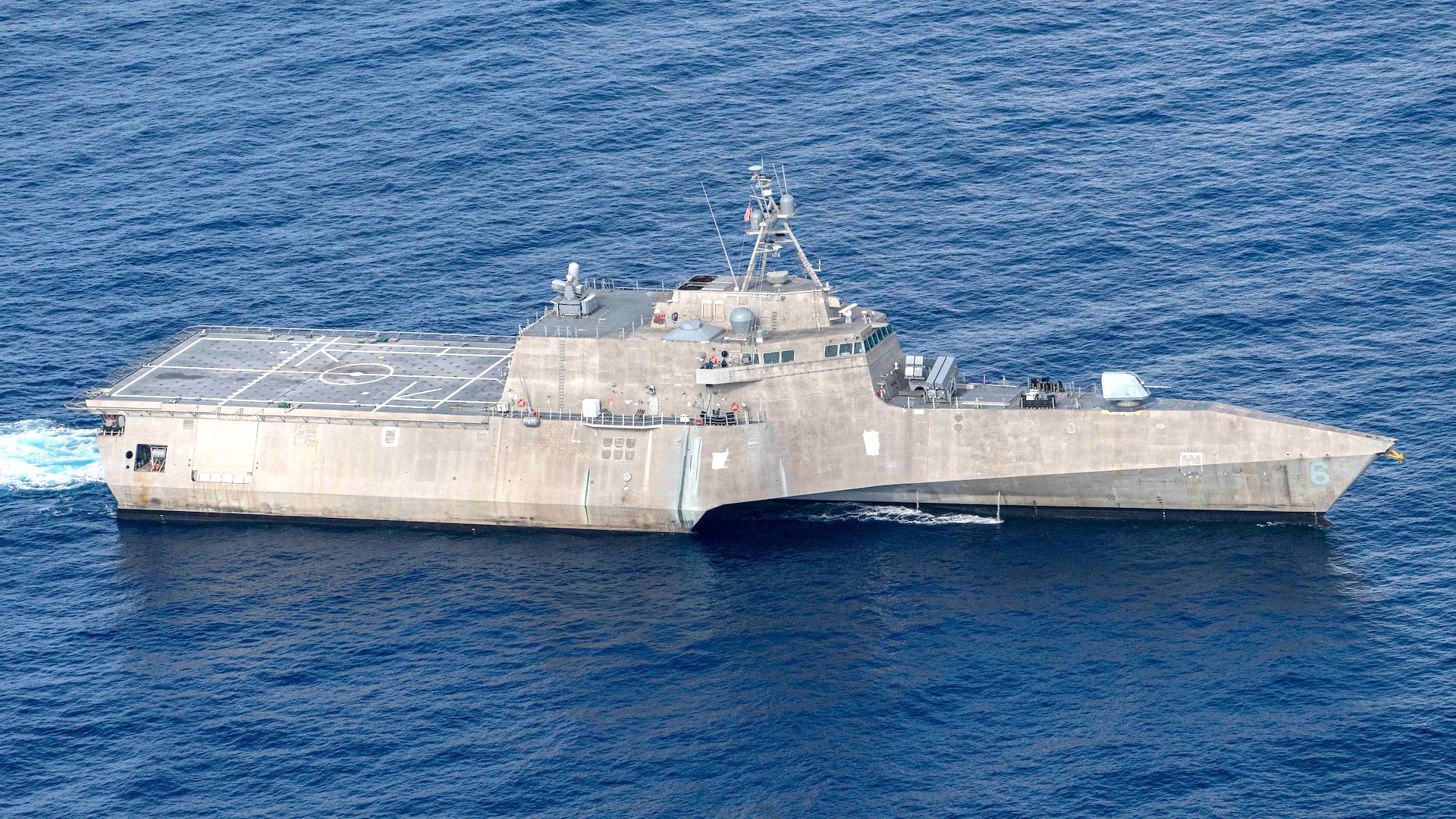

The Navy plans on selling off six of its much-maligned littoral combat ships to U.S. allies through the Defense Department’s Foreign Military Sales program after just a few years at sea, according to the service’s recently-released shipbuilding plan.
The plan, publicly disclosed in the Annual Long-Range Plan for Construction of Naval Vessels for the 2024 Fiscal Year sent to Congress in late March and first reported by our colleagues at The War Zone, would see the service move to sell two Independece-class and four Freedom-class LCS variants over the next two years.
As The War Zone notes, the youngest LCS up for sale under the proposed plan is Freedom-class USS St Louis, which was commissioned barely three years ago and billed as bringing “speed and agility” to the Navy’s surface fleet.
“Whether conducting counter-narcotic operations in the Caribbean or working to enhance interoperability with partners and allies at sea, USS St. Louis will provide maneuverability, stability, and lethality in today’s era of Great Power Competition,” then-Navy Secretary Kenneth J. Braithwaite said at the time.
Meanwhile, the oldest LCS on the chopping block is the Independence-class USS Jackson, which was commissioned eight years ago. Like the St. Louis, it also received heavy praise from service leaders during the occasion.
“They’re providing incredible presence. They’re providing lethality. They’re providing a lot of things that the United States Navy needs today and is going to need for years in the future,” then-Navy Secretary Ray Mabus said at the time.
The other ships planned for foreign military sale include the USS Montgomery, USS Wichita, USS Billings, and the USS Indianapolis, according to the Navy, several of which the service initially wanted to mothball entirely.
Subscribe to Task & Purpose Today. Get the latest military news, entertainment, and gear in your inbox daily.
Unceremoniously dubbed the “little crappy ship” by its detractors, the LCS has been subject to withering criticism from within defense circles amid years of frequent mechanical failures ad embarrassing cost overruns surrounding what was once billed as a superfast surface combatant designed to track down submarines, neutralize anti-ship mines, and dominate littoral zones.
The Navy’s budget for fiscal year 2023 called for decommissioning nine Freedom-variant LCS, which have been plagued with problematic propulsion systems for years. But as Chief of Naval Operations Michael Gilday testified last year, the biggest influence on the Navy’s push to rid itself of the warship is its unsuitability in a near-peer fight.
“We need a capable lethal-ready Navy more than we need a larger Navy that’s less capable, less lethal, and less ready,” Gilday told the Senate Appropriations Subcommittee on Defense at the time. “And so, unfortunately, the littoral combat ships that we have, while the mechanical issues were a factor, a bigger factor was — was the lack of sufficient warfighting capability against — against a peer competitor in China.”
In the same hearing, Gilday proposed selling off the LCS “to other countries that would be able to use them effectively,” namely unspecified allies “in South America … that would be able to use these ships that have small crews.”
Selling off the LCS may be the best option for the Pentagon to recoup the estimated $70-million annual cost of running one of the troubled warships, especially since the Navy is struggling to figure out an appropriate mission as part of its surface fleet for these floating liabilities and resorting to crowdsourcing mission sets from fleet commanders.
“We weren’t sure LCS was executing the missions it was designed for,” Commander of Naval Surface Forces Vice Adm. Roy Kitchener said in January 2022. “And so we … went out to the number of fleet commanders and said, ‘Alright, what do you want it to do? And what missions do you want it to execute based on the environment we’re in now?’”
The latest on Task & Purpose
- New details emerge about Col. Chung, the suspended commander of 5th SFAB
- Navy SEAL doctor astronaut Jonny Kim somehow finds time to become naval aviator
- Russia’s Spetsnaz forces are being annihilated in Ukraine, leaks claim
- 75th Ranger Regiment team wins Best Ranger Competition for third year in a row
- Wagner Group leader calls for end to Russia’s ‘special military operation’